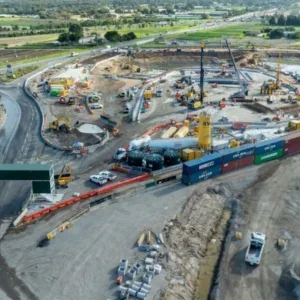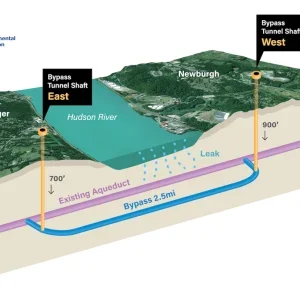Maybe it was the balmy Singapore weather, or possibly one too many of its famous Slings, but the atmosphere at last month’s International Tunnelling Association (ITA) Congress and General Meeting on the Lion State was certainly a convivial one! Thirty-six of the ITA’s 53 member nations were represented – totalling almost 800 delegates – whilst the ITA welcomed two new member nations, Indonesia and Vietnam.
T&TI’s congratulations go to Dr Harvey Parker, of the US, who triumphed in the presidential elections and now heads up the ITA for the next three years. Harvey takes over from the popular André Assis, of Brazil, and in his address to the delegates Harvey paid tribute to the immediate past president saying, “thanks to his inspiration and leadership the ITA has improved magnificently. The ITA has grown every year – but in leaps and bounds under André.” Good luck to Harvey for his tenure and a big well done to Andre for a productive three years.
Congress highlights included the opening speech by Singapore’s Minister for Transport, Mr Yeo Cheow Tong, who described new incentives launched by the Singapore government following the recent retaining wall collapse on the city’s Circle Line.
Contractors will have 0.5% of the contract sum (this 0.5% will be capped at approximately US$610,000) made available as a reward for good safety records, the reverse being implemented for a bad safety record. Although agreeing in principle, I’m not sure whether a culture of rewarding a good safety record is a healthy one? Surely good safety is to be expected, not bought.
Mixed in with some rather average papers were a number of extremely enlightening ones, although once again, presentations that talked through construction problems were sadly far and few between.
One negative though – I really do think there are too many papers presented, which ultimately leaves little time for any kind of real point to be made. How do you describe a project or a technical subject in 15-20 minutes?
Some argue that you should refer to the proceedings book for a more in depth look at each presentation. Why then attend at all, if only to see a fleeting overview when you could just buy the book?
Obviously it comes down to money. The more presentations, the more cash the conference makes. But if this becomes detrimental to the conference, or any other conference for that matter, then maybe it’s time for a bit of a re-think.
However, all in all, it was a very positive event that reflected an industry in seemingly good health with an air of optimism for the future. Lets hope for another productive year before we do it all again in Turkey next May.
Tris Thomas







